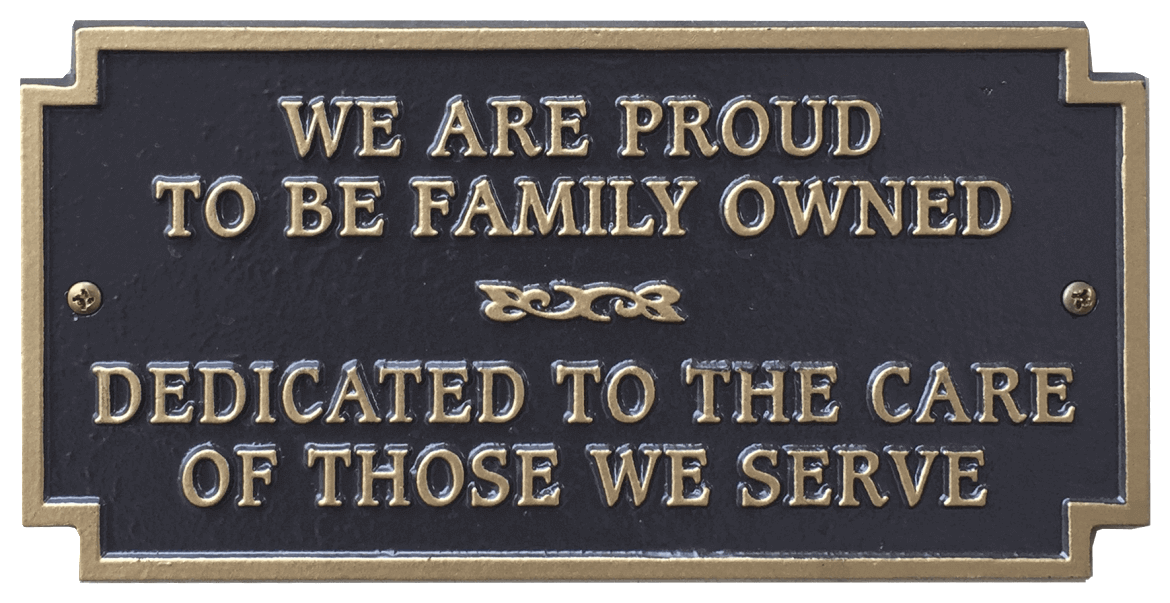The "Have the Talk of a Lifetime" program was made by the Funeral and Memorial Information Council (FAMIC) to help families talk about the things that are most important to them and how to remember and honor a person's unique life story in very personal ways. Memorialization has changed a lot since it first started. Today, it can truly show a person's life story, core values, passions, interests, and experiences. Meaningful memorialization can change people's lives, heal them, and give them a lot of comfort. Have the Talk of a Lifetime gives families useful tips, conversation starters, and good advice on how to talk about the most important things in life and how they want to be remembered after they die and for generations to come.
Talk of A Lifetime
Why is having the Talk important?
Most of us have a deep-down desire to know that we made a difference in the world and in the lives of those around us in some meaningful way. For both you and your loved ones, having the Talk of a Lifetime can really change your life.
These talks can help us get to know family and friends we thought we knew well again by showing us new sides of their personalities and helping us see them in new and different ways. It can be very rewarding and fulfilling for everyone involved to sit down with your loved ones and really talk about their lives, experiences, and memories.
Learning about the important people, places, and events that have shaped their lives, as well as their favorite activities and pastimes, the values they hold dear, and the important lessons they've learned along the way can help us get much closer to the people we care about most. These important talks help us tell our loved ones how much they have changed our lives for the better and how much they will be remembered.
Who should Have the Talk?
You can have the best conversation of your life with anyone you love and care about, like your parents, children, grandparents, aunts and uncles, siblings, spouse or partner, or a close friend. The best thing about these talks is that they can happen anywhere and anytime.
You and your loved one can have these important talks anywhere you both feel comfortable and relaxed. For example, you could have them over a meal at home or at a favorite restaurant, sit together in the living room, go for a peaceful walk through the neighborhood or a local park, get together at a family reunion or holiday celebration, or even play a favorite board game or work on a project together.
You don't have to wait for a certain event or only talk about it at the end of your life. We can and should have these talks at any time in our lives. We can never be sure what the future holds, so we should make the most of the time we have with our loved ones while they are still with us and we can fully engage with them.
How do I start the Talk?
Sometimes, using a visual prompt, such as a photo album, souvenir, or memento, can be a great way to start a conversation. Memorable places, such as the church where your loved one was married or a favorite park can also help someone begin to open up and share their story.
You could share a memory about a vacation you took together and will always remember, a piece of advice that you cherish, a song that reminds you of them or the reasons you will never forget them. You may wish to take notes during or after your conversation, or make an audio recording. You should choose whatever method seems most appropriate and comfortable given the setting of your conversation.
Some questions you could ask to start the talk are:
- What is your proudest achievement?
- What was the one piece of advice you received from your parents or grandparents that you never forgot?
- Tell me about the most memorable summer you had growing up.
- Tell me about your favorite teacher; what did you learn from him or her?
- If you could spend a day doing anything you like, what would it be?
- Who has been your greatest inspiration?


